This post may contain affiliate links. Please read my disclosure.
Fruits are a great source of vitamins, minerals, fiber, and phytonutrients!
Fruit contains fat-soluble vitamins including vitamin A, E, D, and K. They also have water soluble vitamins, including B complex vitamins such as B6, B12, folate, niacin, and thiamine, and vitamin C. Additionally, fruits are a good source of the mineral, potassium. Some fruits are also high in calcium.
Most importantly, fruits are an excellent source of phytonutrients, which have antioxidant properties that reduce the damaging affects of oxidation to prevent damage to cells throughout the body. In particular, they contain bioflavonoids also known as anthocyanins. Anthocyanin pigments give fruit such as blueberries and blackberries their vibrant color. The anthoycanins provide many health benefits, including heart health, preventing diseases, and reducing the risk of cancer.
Why You Shouldn’t Eat Too Many Fruits
Fruit contains fructose, which is a simple sugar (a form of carbohydrate). Simple sugars are absorbed into the blood stream and when the sugar level rises, there is a release of insulin from the pancreas. Simple sugars are easily broken down and cause blood sugar to rise quickly. When there is a high amount of these simple sugars, insulin levels may rise and this can aggravate insulin resistance.
Fruits that are low in sugars and carbohydrates are less likely to cause the pancreas to produce high levels of insulin. These fruits, that are low glycemic, have carbohydrates that break down more slowly and reduce glucose more gradually. Low glycemic foods are not as conducive to causing large spikes and drops in blood sugar.
Imbalances in blood sugar can greatly affect health. Chronic imbalances can cause insulin resistance, weight gain, fatigue, high blood pressure, heart disease, anxiety and depression.
Best Way to Eat Fruit
It is best to eat fruit with some protein. This slows down the release of insulin and helps keep you blood sugar more level.
Choose Low Sugar Fruits
It is good to have some low sugar fruits in your diet every day. However, you don’t have to completely avoid higher sugar fruits, but be mindful that it is best to eat them in smaller amounts.
Here are 10 Low Sugar Fruits:
Strawberries-
Grams of Fructose: 1.9 grams for 1/2 cup, Net Carbs: 3 grams for 1/2 cup
Raspberries-
Grams of Fructose: 1.5 grams for 1/2 cup, Net Carbs: 4 grams for 1/2 cup
Blackberries-
Grams of Fructose: 1.7 grams for 1/2 cup, Net Carbs: 5 grams for 1/2 cup
Cranberries-
Grams of Fructose: .35 grams for 1/2 cup, Net Carbs: 3.5 grams for 1/2 cup
Cantaloupe-
Grams of Fructose: 2.8 grams for 1/2 cup, Net Carbs: 5 grams for 1/2 cup
Honey Dew Melon
Grams of Fructose: 6.7 grams for 1/2 cup, Net Carbs: 7 grams for 1/2 cup
Plums
Grams of Fructose: 3 grams for 1 plum, Net Carbs: 7.5 grams for 1 plum
Peaches
Grams of Fructose: 5 grams for 1 peach, Net Carbs: 6 grams for 1 peach
Blueberries
Grams of Fructose: 3.5 grams for 1/2 cup, Net Carbs: 8 grams 1/2 cup
Green Apples
Grams of Fructose: 3.5 grams for 1/2 apple, Net Carbs: 8 grams for 1/2 apple
Some fruits that are higher in sugar are:
Pineapples, mangoes, melons and papayas.
What types of fruit do you mostly eat? High and/or low sugar fruits?
Photo source: 1
Sources:
http://articles.mercola.com/sites/articles/archive/2010/06/19/richard-johnson-interview-may-18-2010.aspx

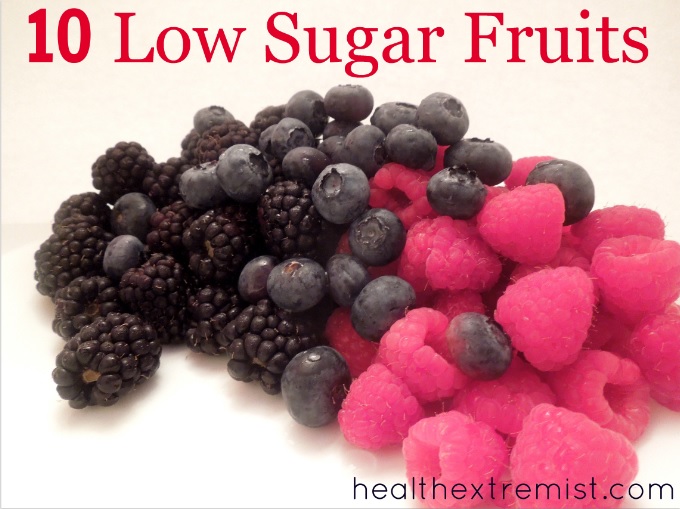


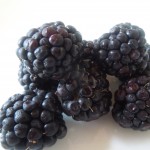
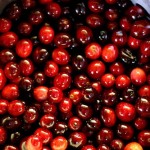
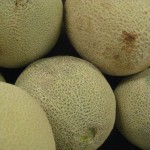

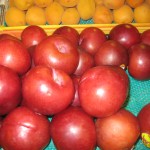
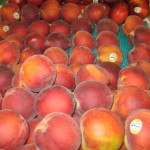
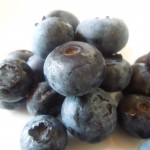
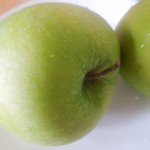
A few years ago I felt really weak, and everything was turning black.
Consuming baked potatoes is also effective treatment for curing hypertension.
It is the most troublesome disease in this era.